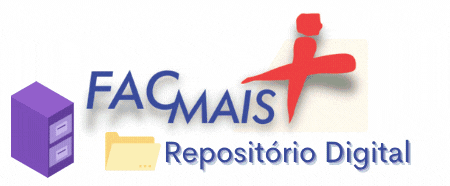Use este identificador para citar ou linkar para este item:
http://65.108.49.104:80/xmlui/handle/123456789/524Registro completo de metadados
| Campo DC | Valor | Idioma |
|---|---|---|
| dc.creator | LELLIS, Eliane Gonçalves de Lima | - |
| dc.date.accessioned | 2022-10-11T21:12:17Z | - |
| dc.date.available | 2022-03-23 | - |
| dc.date.available | 2022-10-11T21:12:17Z | - |
| dc.date.issued | 2022-03-23 | - |
| dc.identifier.uri | http://65.108.49.104:80/xmlui/handle/123456789/524 | - |
| dc.description.abstract | Investigations in the field of education, as in Beltrame et al. (2019), Collares y Moysés (2011), Gomes (2019), Guarido (2008), Toassa (2021), among others, demonstrate a significant increase in diagnoses of different disorders in the school space, calling attention to the phenomenon of the pathologization. and the medicalization of learning difficulties. In view of that, the present study is justified by approaching a topic that, despite being debated in different spaces of society, needs to be constantly highlighted, especially in the school environment, due to the different conceptions that have been denounced on the derivation of children and girls. young people to the clinic, since they are considered different from what is expected by the school. Therefore, a theoretical study of a bibliographic nature was carried out, with the objective of contextualizing the theme and extracting data on the production of the diagnosis in the school context and its consequences for students who present difficulties in learning. The starting point was the following question: how does the diagnosis impact the schooling process of students with learning difficulties? The general objective was to understand how the diagnosis influences the construction of the student's subjectivity in the schooling process. Specifically, we seek to describe the production of diagnoses of intellectual disability in students with learning difficulties, to problematize the pathologization of children in the schooling process and to highlight the impact of the diagnosis on the construction of the subjectivity of this subject. As a methodology, a bibliographic review was used with the aim of locating the object of study in the field of investigations on the topic, constructing a contextualization about the proposed question and demonstrating how the consequences of a superficial and light diagnosis can be converted into negative consequences and irreversible. for the process of schooling of students with learning difficulties and diagnosis of intellectual disability. From the cases presented, it can be appreciated that the impact of the report of intellectual disability in the life of these children works as a seal; a stigma that carries with great suffering. | pt_BR |
| dc.language | por | pt_BR |
| dc.publisher | Faculdade Facmais | pt_BR |
| dc.rights | Acesso Aberto | pt_BR |
| dc.subject | Dificuldade de aprendizagem | pt_BR |
| dc.subject | Diagnóstico | pt_BR |
| dc.subject | Subjetividade | pt_BR |
| dc.subject | Patologização | pt_BR |
| dc.title | MEDICALIZAÇÃO NA INFÂNCIA: UM CARIMBO QUE IMPLICA NA SUBJETIVIDADE DA CRIANÇA | pt_BR |
| dc.type | Dissertação | pt_BR |
| dc.creator.Lattes | http://lattes.cnpq.br | pt_BR |
| dc.contributor.advisor1 | GOMES, Selma Regina | - |
| dc.contributor.advisor1Lattes | http://lattes.cnpq.br | pt_BR |
| dc.description.resumo | Pesquisas no campo da educação, como as de Beltrame et al. (2019), Collares e Moysés (2011), Gomes (2019), Guarido (2008), Toassa (2021), dentre outros, mostram um expressivo aumento de diagnósticos de diferentes transtornos no espaço escolar, chamando a atenção para o fenômeno da patologização e da medicalização das dificuldades de aprendizagem. Diante disso, o presente estudo justifica-se por abordar um tema que, apesar de debatido em vários espaços da sociedade, precisa ser constantemente evidenciado, principalmente no âmbito escolar, em função dos diversos equívocos já denunciados sobre o encaminhamento de crianças e jovens à clínica, por serem considerados diferentes em relação ao esperado pela escola. Assim sendo, procedeu-se a um estudo teórico, de cunho bibliográfico, com o objetivo de contextualizar a temática e extrair dados sobre a produção do diagnóstico no contexto escolar e suas consequências para os alunos que apresentam dificuldade de aprendizagem. Partiu-se da seguinte questão: como o diagnóstico impacta o processo de escolarização do estudante com dificuldade de aprendizagem? O objetivo geral foi o de compreender a maneira como o diagnóstico influencia a construção da subjetividade do aluno em processo de escolarização. De maneira específica, buscou-se descrever a trajetória da produção de diagnósticos da deficiência intelectual em estudantes com dificuldade de aprendizagem, problematizar a patologização de crianças em processo de escolarização, e evidenciar o impacto do diagnóstico na construção da subjetividade desse sujeito. Como metodologia, empregou-se a revisão de literatura, a fim de situar o objeto de estudo no campo das investigações sobre a temática, construir uma contextualização acerca do questionamento levantado e demonstrar como as consequências de um diagnóstico superficial e aligeirado podem se tornar negativas e irreversíveis para o processo de escolarização de estudantes com dificuldade de aprendizagem e com diagnóstico de deficiência intelectual. Com base nos casos apresentados, percebe-se que o impacto do laudo de deficiência intelectual na vida dessas crianças funciona como um carimbo; um estigma que eles carregam com muito sofrimento. | pt_BR |
| dc.publisher.country | Brasil | pt_BR |
| dc.publisher.department | Departamento 1 | pt_BR |
| dc.publisher.program | PPG1 | pt_BR |
| dc.publisher.initials | FACMAIS | pt_BR |
| dc.subject.cnpq | CNPQ::CIENCIAS HUMANAS::EDUCACAO | pt_BR |
| Aparece nas coleções: | Dissertações do Mestrado | |
Arquivos associados a este item:
| Arquivo | Descrição | Tamanho | Formato | |
|---|---|---|---|---|
| ELIANE GONÇALVES DE LIMA LÉLLIS.pdf | 1.23 MB | Adobe PDF | Visualizar/Abrir |
Os itens no repositório estão protegidos por copyright, com todos os direitos reservados, salvo quando é indicado o contrário.
